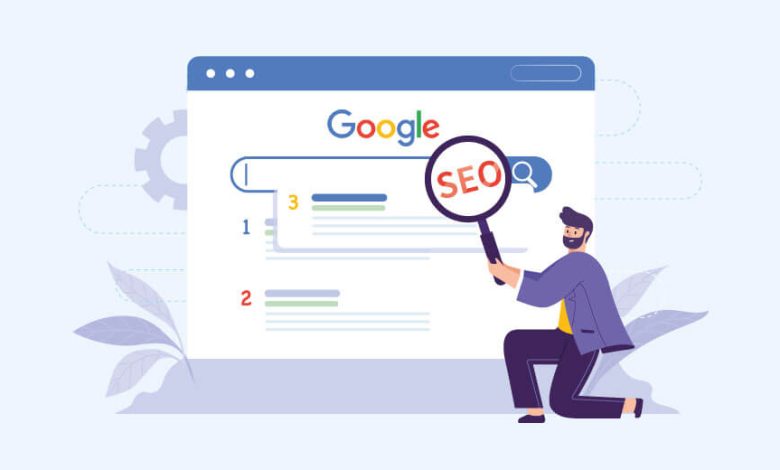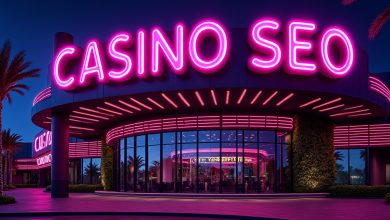
Search Engine Optimization (SEO)
Get your main keyword in FIRST
Google places a higher value on keywords that appear higher up in your content, so your most important keyword should be positioned in the first 25 words, to optimise your search ranking.
Create unique content
If you want to score highly on Google, your content must be unique, as should all your titles, descriptions, Meta tags, and Image alt text. Duplicating content will cause you to appear lower in search, as according to Google, to rank well, your content needs to be fresh and original.
Optimise your titles
Don’t overstuff your headers with keywords, instead choose one and use it as early as possible in your title instead. Your title should be short but compelling, with enough appeal to make people want to click through. Make sure your copy lives up to the promise of your header so you can maximise your shares, as the more people share your work, and the more click throughs you get, the higher you’ll rank on Google.
Create longform content
Google favours long form articles over briefer ones, so for the best results your content should be between 1900-2000 words. By creating informative dives into topics searchers are looking for, you’ll be raising your ranking and ensuring you score higher in search results.
Monitor your ranking
A successful SEO strategy is built on the ability to be adaptable, so make use of analytics tools like the Google Search Console to assess your performance. You can use the Search Console to see how well your keywords are doing, check your discoverability, and analyse your click through rate.
Modern SEO
To rank your content, Google uses a system called EAT (Expertise, Authority, and Trustworthiness) and the higher your EAT score, the higher you’ll appear in search results. The good news is there are some steps you can take to improve your ranking, so you appear on the first page of Google search results.
Three ways to score BIG with Google’s EAT system:
Use high authority sources
Google places more priority on content that’s attributed to trusted sources, so pay attention to your authors, and try to use established experts, or people with high EAT scores. Google will check the authority of your content when it returns search results, and content from authority sources will always appear higher.
Monitor your mentions
Google’s algorithm also considers your mentions on other websites, so it can assess what people are saying about you and your brand and rank you accordingly. If you’ve accumulated a lot of negative reviews on trusted sites, this will impact your ranking, but if you can get positive reviews on big sites like Yelp, or Trip Adviser, or gather a lot of likes on Facebook, you can gain a huge search engine advantage.
Use Internal linking
Google’s EAT system also assesses your internal backlinks, and their relevance, so to boost your score, link to other, related pages on your website, and use your main keyword in your anchor text.
Backlinking to other pages is a great way to give a boost to content that hasn’t yet received much attention by giving these pages a better score in search. Never link low link authority pages to other low scoring pages, instead try linking popular, older content to newer articles that haven’t had the chance to gain traction.
Technical SEO
Use tools to check your site’s performance
As well as tracking your keywords and click throughs, you can also use the Google Search Console to;
- Monitor your website’s performance and uptime
- Check for indexing errors in the Coverage tab
- Examine your site’s mobile usability through the Enhancements tab
Indexing errors prevent Google from crawling your site, so if you find any, fix them fast, so people can discover your content.
It’s important to check your site’s Mobile Usability too, as more are now accessing the internet via devices like smartphones. Another reason this factor is so important is because Google’s search index prioritises mobile devices, so you can’t rank well if your site isn’t optimised to display, load, and perform well on tablets and phones.
Optimize your loading speed.
Your site loading speed is crucial to Google, and if your website loads fast, you’ll be giving a boost to your search engine score.
To help your site load as fast as possible, compress your images and display them in a format and size suitable for your layout. Your themes should be lightweight and clutter free, rather than templates with many elements. A great way to boost site speed is by using lazy loading, which loads content only as it’s needed. Implementing lazy loading can rev up your site by up to 50%, so it’s worth giving it a try to see it if works for you.
Off-Page SEO
Too many people fail at SEO, even if they create a lot of informative, high value content because they don’t implement an effective personal outreach strategy. Although you need quality content to make SEO work for you, you must optimise it for the web, and search, and you should also be reaching out to network with people in your sector. In our Google SEO section, you’ll discover how to use modern SEO tools to your advantage, to move higher up in search. You’ll also learn how to find out what links your competition is using, and why you must connect with website and social media pages in your business niche, to ask them to share your content.
Three great tips for getting links from people in your niche:
Don’t spam or pester. Never send spammy or generic emails, spend a little time creating a personalised message to build trust and maximise your chance of getting a yes.
Try to develop relationships first. Spend some time cultivating relationships with your business peers and it will pay off in the long run. Engage them on Facebook and on their page or blog and offer to reciprocate if they share your content when you contact them to ask for backlinks or shares. Don’t be put off if people ignore you at first, getting backlinks is one of the most challenging parts of SEO, so stick at it, as eventually, you’ll get a positive response.
Share your content for free
People need to know you exist before they’ll start doing you favours. They also need to know you’re reliable and can create good content people enjoy engaging with. Share your stuff for free in related Facebook Groups, to get your brand name out there, so people can start to associate it with value added, informative content. Don’t promote at first, make sure the content you share is educational and useful. This way you’ll build trust faster, and you’ll also encourage more people to interact with your work and share it.
Remember to keep at it, even when it feels like no one is responding to you as it takes some time to build trust and a network of people who will be willing to link to your content. Being consistent will pay off, so stay focused and keep reaching out, and you will soon see results. We know getting backlinks can be difficult in the beginning, but we also know that if you stay strong and are diligent, you WILL have success. We believe in you, so keep going and make sure you watch all our SEO related videos, so you can optimise your strategy and triumph in your Digital Marketing efforts.
Local SEO
Check your MAP ranking…
When people search for a nearby business on Google, it returns a set of 3 top results, with a location taken from Google Maps, called a MAP pack. The Map Pack also appears in other non-local results when Google decides it’s appropriate. As the MAP pack is becoming more relevant to search, and is displayed above organic search, you should try to rank in it, if you want to optimise your search strategy.
Enhance your keywords…
To score well in local organic search, you must optimise your keywords and make sure they’re relevant to your local business. Make use of tools like Google Suggest and the Google Keyword Planner to get granular data and see which keywords score highly in specific locations.
Your primary keyword should be relevant to local search results and you should include it in both your URL and title tag. Your website content should also include related local search keywords, including your blog articles, sub headers, and meta data.
Make a Google my business profile
Google My Business is extremely important when you’re trying to rank high in local search, so you need to set up a profile. Your Google My Business profile should mention your opening hours and should include images and video content that show off your brand and your location. To rank even higher, make sure you keep your profile updated by posting weekly news and updates. One of the best strategies for creating new content for Google My Business is to focus on photo updates. You can showcase your business’s location and give customers a look inside, whether you’re a shop, spa, restaurant, or have any other kind of business. Show off your menu, products, treatment list, or dishes and introduce your team too. You can have your staff share their stories and give people an inside look at what they do, and how they contribute to your business.
Remember to ask your customers to leave you a positive review, as this is an essential part of growing your Google My Business profile. If you can gather many glowing reviews, you will boost your power on Google Maps. You’ll also boost your rating on the Google Map Pack, making it more likely your company will come up first when people make local searches.
Please share with your friends and family. If you have any questions feel free to ask us, please comment below. If you like this article, share it on your social networks!




